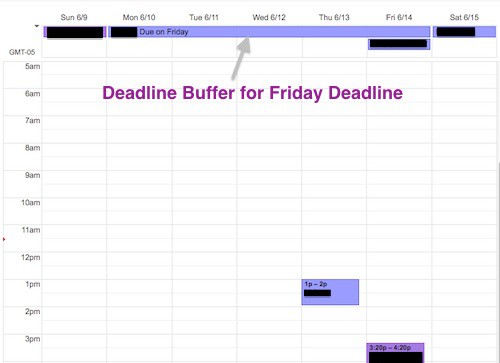
A Hard Week
Last week was hard. Four large deadlines landed within a four day period. The result was a week (and weekend) where I was forced to violate my fixed-schedule productivity boundaries.
I get upset when I violate these boundaries, so, as I do, I conducted a post-mortem on my schedule to find out what happened.
The high-level explanation was clear: bad luck. I originally had two big deadlines on my calendar, each separated by a week. But then two unfortunate things happened in rapid succession:
- One of my two big deadlines was shifted to coincide with the second big deadline. Because I was working with collaborators, I couldn’t just ignore the shift. The new deadline would become the real deadline.
- The other issue was due to shadow commitments — work obligations you accept before you know the specific dates the work will be due. I had made two such commitments months earlier. Not long ago, however, their due dates were announced, and they both fell square within this brutal week.
The easy conclusion from this post-mortem is that sometimes you have a hard week. Make sure you recharge afterward and then move on.
This is a valid conclusion And I took it to heart. But it’s not complete…


